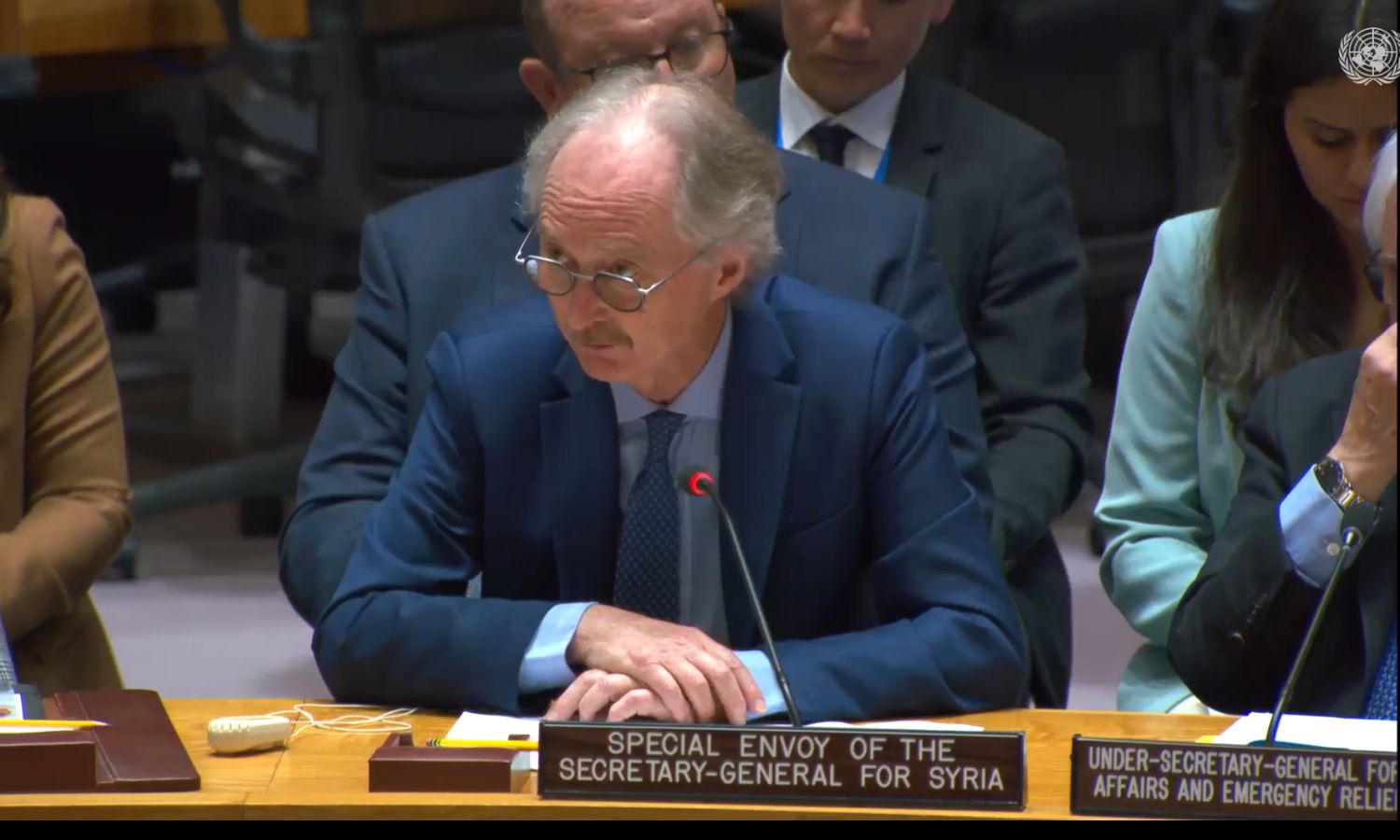UN Special Envoy to Syria, Geir Pedersen, arrived in Damascus on Sunday morning, December 15, marking his first visit to the Syrian capital following the departure of President Bashar al-Assad.
In press statements, Pedersen addressed the new challenges facing Syria, emphasizing the urgent need to launch an inclusive political process. “It is clear that this process must be led by the Syrians themselves. It is their responsibility, but we hope they will receive support,” he said.
Pedersen highlighted the second major challenge as the rebuilding and reactivation of state institutions. He stressed the importance of restoring service delivery, enforcing law and order, and ensuring security, noting that the caretaker government is fully aware of these priorities.
“We all know that Syria has endured an immense humanitarian crisis,” Pedersen said, calling for immediate humanitarian assistance to both the Syrian people and refugees wishing to return. He linked this aid to the broader goal of economic recovery, emphasizing the need for swift action. “It’s all about economic recovery, which requires a quick solution,” he added.
The envoy also expressed hope for a rapid lifting of sanctions, envisioning a collective effort to rebuild Syria. “We need to see a mobilization of people working toward rebuilding Syria again,” he said.
Enab Baladi reached out to Jennifer Fenton, spokesperson for the UN Special Envoy’s office, for details regarding the purpose of the visit or Pedersen’s meetings. However, Fenton declined to provide specific answers, stating that she could not disclose his itinerary or planned interactions.
Context of the Visit
Pedersen’s visit follows his participation in the Arab Contact Committee meeting on Syria, held in Aqaba, Jordan, the day before. The meeting included foreign ministers from Jordan, Saudi Arabia, Iraq, Lebanon, and Egypt, as well as the Secretary-General of the Arab League. Additional attendees included foreign ministers from the United States, Turkey, the UAE, Bahrain, Qatar, France, and representatives from Britain, Germany, and the European Union.
The Aqaba meeting reaffirmed support for a peaceful and inclusive Syrian-led political transition. This process, facilitated by the United Nations and the Arab League, aims to fairly represent all political and social groups, including women, youth, and civil society, in accordance with the principles and mechanisms outlined in UN Security Council Resolution 2254.
The resolution calls for the formation of a transitional governing body through Syrian consensus and the implementation of steps to transition from the current phase to a new political system. This system is envisioned to meet the aspirations of all Syrians through free and fair elections under UN supervision, based on a new constitution drafted and approved by the Syrian people, within a defined timeline.
Pedersen’s visit underscores the international community’s ongoing efforts to support a political transition in Syria, alongside addressing its dire humanitarian and economic crises.
This article was translated and edited by The Syrian Observer. The Syrian Observer has not verified the content of this story. Responsibility for the information and views set out in this article lies entirely with the author.


